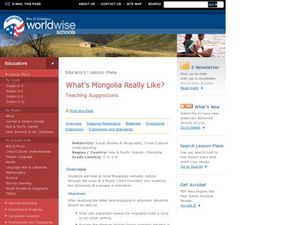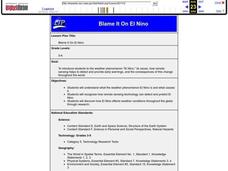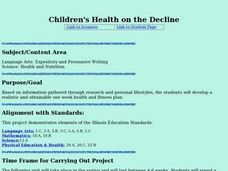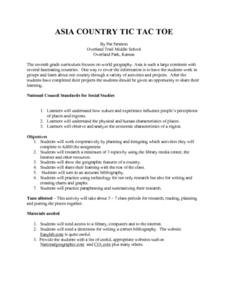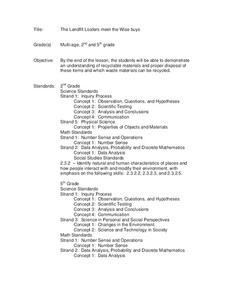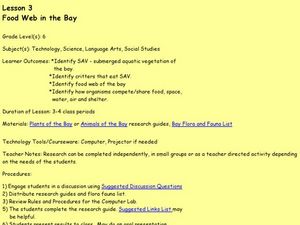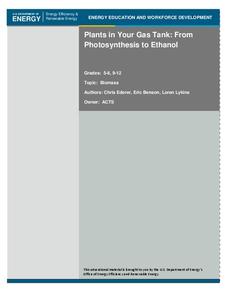Peace Corps
What's Mongolia Really Like?
Understanding different cultural experiences is a challenging and worthwhile objective throughout grade and content levels. This lesson facilitates an appreciation of rural Mongolian life through a simulation of being a nomadic teen as...
Curated OER
Survival in Antarctica
Explore the harsh climate of Antarctica and its wildlife. Participate in experiments to determine how humans survive in the continent's climate, and address the difficulties faced by scientists.
Curated OER
Twirly Whirly Milk
Student observe the effect soap (or detergent) has on the movement of food color in milk. Pupils observe the properties of solids and liquids while making butter. They read a poem, Shaking, and listen for ryhming words. Studdents...
Curated OER
Benjamin Franklin: Goods and Services in Colonial America
Fifth graders examine the impact of Benjamin Franklin's ideas on the goods and services available in Colonial America as well as analyze the importance of Franklin to modern society. While listening to "How Ben Franklin Stole the...
Curated OER
My Feelings
First graders examine and discuss different emotions and feelings, and how people can react when they are in an unsafe situation. They discuss a feelings thermometer, and complete a worksheet involving identifying how they feel in...
Curated OER
What's Mongolia Really Like?
Students discover the people of Mongolia. In this social studies lesson plan, students look at the Mongolian nomadic culture by reading a letter written by a member of the Peace Corps. They describe the different types of communities...
Earth Day Network
Filtering Water
See the water filtration system up close with a fun science experiment. Young scientists work for several class periods to design a water filter using household objects, and then decide which filter material would be most effective in...
NOAA
El Niño
El Nino, La Nina ... and the Santa Maria? The 11th installment of a 23-part NOAA Enrichment in Marine sciences and Oceanography (NEMO) program explains the mechanism of El Nino/Southern Oscillation. Pupils use previous data to determine...
Curated OER
Blame It On El Nino
Students study the weather phenomenon El Nino is and what causes it, and recognize how remote sensing technology can detect and predict El Nino. Students discover how El Nino affects weather conditions throughout the globe through research.
Curated OER
Kosovo: A Thousand Year Old Border Conflict
Students present proposals and negotiate with other representatives to bring lasting peace to the area through a simulated "Summit Conference."
Curated OER
The Times and Life During the California Gold Rush
Fourth graders read about the era in their history books, write in their journals revolving around the Gold Rush, making crafts such as newspapers, and also play the part of the Forty-niners.
Curated OER
Children's Health on the Decline
Demonstrate the importance of children's health with this cross-curricular lesson, which includes elements from health and science as well as expository writing. Middle schoolers develop realistic and obtainable one week health and...
Curated OER
Journey to Gettysburg
Students use latitude and longitude to map the path of the Battle of Gettysburg.
Curated OER
Wetland Metaphors
Learners describe the characteristics of wetlands and identify their ecological functions. They inspect items and use them to create metaphors about wetlands.
Curated OER
Design a Reef!
Using a miniature coral reef aquarium kit, young ecologists model this unique ecosystem. They research various coral reef organisms and their niches, and they culminate the project by working together to write a report. Use this activity...
Curated OER
History's Thermometers
Ancient coral beds give scientists clues to past ocean temperatures in much the same way that tree rings indicate historical weather conditions. High school scientists examine coral oxygen isotope ratios and plot the data as a function...
Curated OER
Journey to America
Fifth graders carefully analyze the artwork, Les Emigrants, and explore the reasons that people emigrated to the United States, and what life was like for new arrivals. They discuss what things immigrants were able to bring with them and...
Curated OER
Sources of Potential Groundwater Contamination
Students construct models that demonstrate potential sources of contamination. Students select one type of contamination model (septic system, sinkhole, landfill, disposal lagoon, leaky barrels, oil spill, agricultural contamination) to...
Curated OER
Sink or Float
Second graders explore floating and sinking and make predictions about whether certain objects are likely to sink or float. They read the story Who Sank the Boat? by Pamela Allen. Pupils loacate rhyming words and discuss the events of...
Curated OER
Asia Country: Tic Tac Toe
Enhance your geography class's knowledge of the countries on the Asian continent with this research lesson. Individuals or groups use books, the library, and the Internet to research one Asian country of their choice. Handouts and...
Curated OER
The High Cost of Chemical Dependency
Sixth graders explore, analyze and study the effect and impact that humans have on the environment based on their choices as individuals, businesses and governments. They assess the balance between human activities and aquatic pollution.
Curated OER
The Landfill Loafers Meet the Wise Buys
Students discover recyclable materials and the proper disposal of those items through Internet research. Working in groups of four, they search the Internet for uses of recyclable materials. After research is complete, they participate...
Curated OER
Food Web in the Bay
Sixth graders study the food web in a bay. In this food web lesson, 6th graders investigate the SAV- submerged aquatic vegetation of a bay including their predators, and how the organisms eat, have proper living space and water. They...
Curated OER
Plants in Your Gas Tank: From Photosynthesis to Ethanol
Explore ethanol and how it is produced. Young scientists investigate photosynthesis and fermentation to the concept of conservation of energy and mass. They discuss the environmental and economical benefits of ethanol as a fuel additive.







